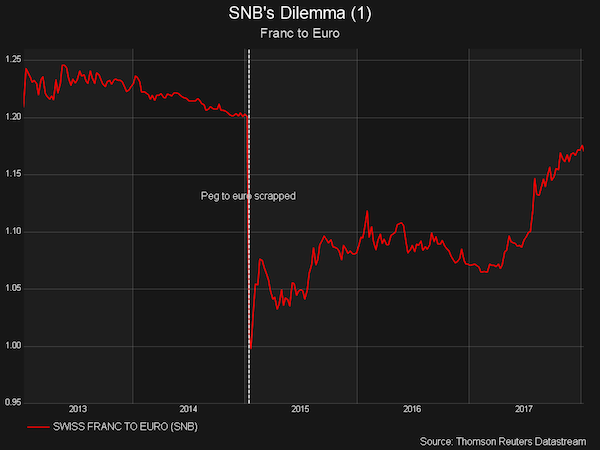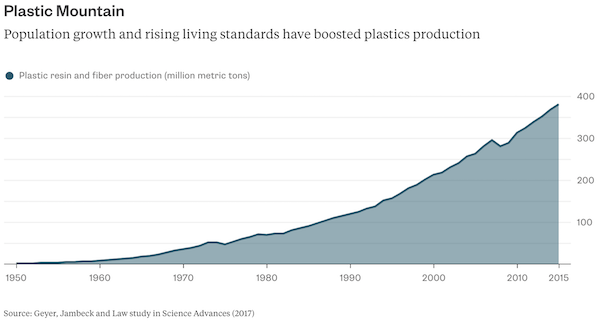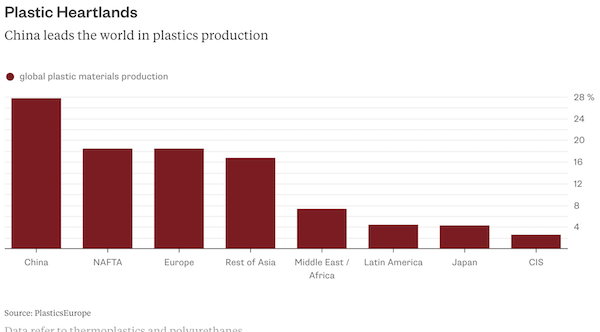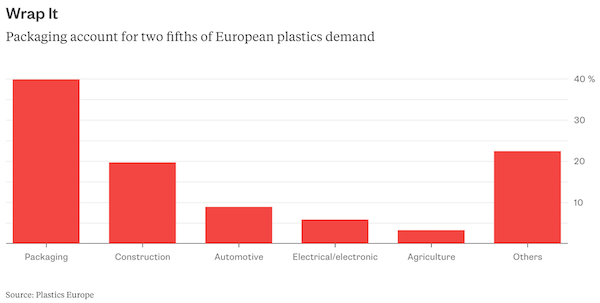
Pable Picasso Le Pengouin 1907



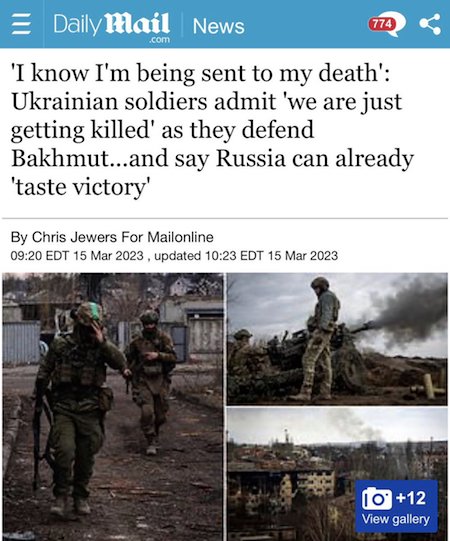

RFK Haines
https://twitter.com/i/status/1635831142124339200
Death by Remdesivir: Under Fauci, We Had the Highest Body Count in the World@RobertKennedyJr: "It [Remdesivir] was Tony Fauci's pet drug. We were the only ones that had it for a year. And we – in our country – we have 4.2% of the global population; we had almost 20% of global… pic.twitter.com/V6vzjkyciF
— The Vigilant Fox 🦊 (@VigilantFox) March 15, 2023

RFK Fauci
#2 @RobertKennedyJr tells @jimmy_dore: "They took the money that Cheney gave them [from the Patriot Act], $2.2 billion, and they funneled it through NIH, and it all went through Anthony Fauci. So beginning in 2002, Anthony Fauci got a 68% raise from the Pentagon for doing… https://t.co/irKFTrWpon pic.twitter.com/tGHBzbzYCi
— kanekoa.substack.com (@KanekoaTheGreat) March 15, 2023



Tucker weapons
Zelenksy's Forces Are Running Out of Munitions Despite Billions of Dollars Flowing to Ukraine@TuckerCarlson: "Where's all the money going? You can't have an audit. Because if you do want an audit of where your money is going into the most corrupt country in Europe, you're a… pic.twitter.com/1osEOs8hC5
— The Vigilant Fox 🦊 (@VigilantFox) March 16, 2023

Bosi
Riccardo Bosi: “Vlad's taking down the Deep State”
-> Boom …PS: Riccardo is a former Australian Army Special Forces lieutenant colonel who served in the Middle East, Asia and the Pacific, as well as a long-term adviser to the UAE Special Operations Command … THX @rbelcastro2 pic.twitter.com/tTqGsxh5ov
— Lord Bebo (@MyLordBebo) March 15, 2023

Macgregor
Mainstrean media finally reporting the truth about Ukraine… and there's more needless killing.
Col Doug Macgregor
see full vid: https://t.co/ALbYoKagyJ pic.twitter.com/5uIWuPxmZs— Judge Napolitano (@Judgenap) March 15, 2023

Russian warriors
The NAFO trolls are just going to love this video.
A message from the Russians with English narration. pic.twitter.com/8AYL1Fw8rv
— GraphicW (@GraphicW5) March 14, 2023


Credit Suisse is labeled systemically important, aka too big to fail. On Wall Street. But as ZH notes this loan does nothing to halt the depositor flight that made the loan necessary. What happens if someone decides to take the other side of the bet, like Soros did with the Bank of England?
• Credit Suisse Borrows $54BN From SNB: “Pre-emptively Strengthen Liquidity” (ZH)
Update (21:00ET): And so, the “bailout” arrives just a few hours before the Europe open, Credit Suisse said it’s planning to borrow from the Swiss National Bank up to CHF50 billion ($54 billion) under a covered loan facility which is “fully collateralized by high quality assets”. It wasn’t immediately clear what high quality assets CS has left to pledge but in a time of BTFP, we are confident they found something. The bank also announced offers by Credit Suisse International to repurchase certain OpCo senior debt securities for cash of up to about CHF3 billion, which will help the bank pick up a few pennies in bond discount, even as it faces tens of billions in deposit flight.
So to summarize: Credit Suisse effectively just took out a priming DIP loan, pledging its last remaining assets with the SNB, to shore up some $54BN in emergency liquidity, probably how much the bank has seen in deposit outflows. It will be very interesting on what terms those assets were pledged. Another way of saying it, is that this is a last-ditch liquidity infusion, and all it does is prevent forced asset liquidations (a la SVB). Meanwhile it does nothing to halt the depositor flight because once trust is broken, it rarely returns. The news sent Euro Stoxx 50 futures 2% higher, and pushed Emini S&P futures to session highs of 3946; 2Year yields moved up by about 20bps to 4.00% before fading the move.
That said don’t hold your breath for some breathtaking surge: once the market sees though this rescue for what it is – yet another temporary stop gap measure – it will demand much more, especially after the ECB hikes rates tomorrow which this “band-aid bailout” will allow the Central Bank to do, in the process guaranteeing an even bigger bailout down the line.

“..acting as if there’s no crisis can sometimes be all part of the game to reassure the markets..”
• EU Shrugs Off Silicon Valley Bank Collapse (Pol.eu)
The failure over the weekend of America’s Silicon Valley Bank, which had assets of $200 billion, has prompted fears of wider meltdown, with share prices plummeting and U.S. agencies scrambling to contain the fallout and prevent runs on other lenders. In the European Union, it’s very definitely seen as something that’s happening to other people. “At the EU level, there is very limited presence of Silicon Valley Bank,” Valdis Dombrovskis, executive vice president of the European Commission, said Tuesday. “We are in touch with the relevant competent authorities, but we don’t expect much of a spillover effect.” His was just the latest in a series of chilled-out comments from leading EU figures as they looked on while the financial blowup raged.
“I don’t see any risk of contagion,” French Finance Minister Bruno Le Maire said on Monday. “We are monitoring the situation but there is no specific alert.” EU bank stocks slumped 5.84 percent on Monday in response to the demise of SVB — but rallied on Tuesday, closing back up 2.46 percent. Aside from the immediate risks of contagion, the big question is whether SVB is an idiosyncratic event or a sign of broader ailments at banks. European leaders are firmly playing things down, stressing the difficulties were unique. “The problems arise from the specific business model of the Silicon Valley Bank, and the picture here in Europe is very different,” said Paschal Donohoe, president of the Eurogroup, the gathering of eurozone finance ministers, after their latest meeting on Monday.
Of course, acting as if there’s no crisis can sometimes be all part of the game to reassure the markets. So when the EU says “nothing to see here,” those in the know — particularly those who lived through the financial turmoil a decade and a half ago — may wonder whether actually they’re just hoping that if they say it loudly enough it will become true.

It’s good that they talk. They should do more of that. Much more.
• Pentagon Calls Moscow Over Drone Incident (RT)
US Defense Secretary Lloyd Austin reached out to his Russian counterpart, Sergey Shoigu, on Wednesday, for the first time in months, to discuss the incident in which an American spy drone went down in the Black Sea waters off Crimea. According to the Russian Defense Ministry, Shoigu told Austin that the incident was caused by the Americans violating the airspace restriction declared by Russia, with all the proper international notifications in place. Shoigu called US drone flights off the Russian coast “provocative in nature” and risked an escalation of tensions in the Black Sea. While Russia does not desire such a development, it will “continue to respond proportionately to all provocations,” Shoigu said. He added that the two nuclear powers “must act as responsibly as possible,” which includes keeping a military channel open to discuss any crisis.
Speaking at a Pentagon press briefing, Austin confirmed that he made the call, and said it was “important that great powers be models of transparency and communication.” However, he insisted the US would “continue to fly and to operate wherever international law allows.” The last time Shoigu and Austin spoke was in October 2022, according to AP. The top military officers also had a phone call about the matter, with US General Mark Milley, the chairman of the Joint Chiefs of Staff, reaching out to his Russian counterpart, General Valery Gerasimov. On Tuesday, the US European Command claimed that two Russian Su-27 jets conducted an “an unsafe and unprofessional intercept” of a MQ-9 Reaper drone, which was conducting an intelligence, reconnaissance and surveillance (ISR) mission in international waters over the Black Sea.
According to the US military, one of the planes struck the drone’s propeller, causing the operators to ditch the UAV into the water. The Russian Defense Ministry, however, said that at no point did any of the interceptors make contact with the drone, or use their on-board weapons. The UAV stalled and crashed after executing an abrupt maneuver, Moscow said. Russian ambassador to the US Anatoly Antonov said he told the State Department that US drones have no business so close to the Russian border. The drone was reportedly just 60 kilometers off the coast of Crimea when it crashed.
The US has flown drones and other surveillance aircraft near the Russian border for over a year, providing intelligence and targeting information to the Ukrainian government – along with weapons, ammunition and money – while insisting it is not a party to the conflict. Nikolai Patrushev, secretary of the Russian Security Council, said on Wednesday that the drone incident was “yet another confirmation” the US was directly involved.

Russian Ambassador to the United States Anatoly Antonov is the de facto spokesperson for Moscow on the issue.
• US Drones Have No Business Near Russia – Ambassador (RT)
Moscow regards Tuesday’s incident in which an American drone crashed in the Black Sea as a provocation, Ambassador Anatoly Antonov said after being summoned to the State Department in Washington. Antonov met with Assistant Secretary of State for European and Eurasian Affairs Karen Donfried, who protested the “unsafe and unprofessional intercept” of the drone that resulted in its loss. “We consider this incident a provocation,” Antonov told reporters after the meeting. He said he told Donfried that US drones, planes and ships had no business being that close to Russian borders. “Could you imagine what the reaction of the US media or the Pentagon would be, if such a drone would appear near New York or San Francisco?” he asked.
Antonov described the talks with Donfried as “constructive” and said both sides shared their concerns. The US and Russia need to be “extremely cautious” how they act, given the current situation in Eastern Europe, he added. He also told Donfried that Moscow is seeking “pragmatic relations” and not conflict with the US. According to the US military, two Russian Su-27 interceptors flew dangerously close to the MQ-9 Reaper drone on Tuesday morning, spilling fuel on the drone and at one point damaging its propeller, causing the UAV to crash. The drone, they said, was on a peaceful surveillance mission in international waters. In response, the Russian Defense Ministry said the UAV stalled after executing drastic maneuvers, and that the interceptors “did not come into contact with the UAV.”
Antonov had pointed out that the drone was of a type that can carry multiple missiles and bombs. The MQ-9 was developed as a “hunter-killer” variant of the MQ-1 Predator. The US has flown drones and surveillance planes near the Russian border for over a year, providing intelligence and targeting information to the Ukrainian government – along with weapons, ammunition and money – while insisting it is not a party to the conflict. The exact location of the incident was not provided by either government. Russian media have reported that the Reaper’s last location was about 60 kilometers southwest of the Crimean port of Sevastopol.
US aircraft shouldn’t be flying near Russian border , imagine Washington’s reaction if foreign military aircraft appeared near New York or San Francisco – Russian Ambassador to US Antonov on American drone that crashed in Black Sea. pic.twitter.com/VG2HPQNobu
— sonja van den ende (@SonjaEnde) March 15, 2023

“..Russian fighters did not use any airborne weapons and did not come into contact with the drone..”
• Drone Incident Confirms US Involvement In Ukraine Conflict – Russia (RT)
Moscow will attempt to recover the wreckage of the American MQ-9 Reaper drone that fell into the Black Sea on Tuesday, the secretary of the Russian Security Council, Nikolai Patrushev, has announced. Speaking live on a Russian federal channel on Wednesday, the official admitted that he doesn’t know if it will be possible to get to the remains of the UAV but stressed that it was important to make an effort to find and study the wreckage. Patrushev also added that “Americans keep saying that they are not participating in the hostilities” in Ukraine and that this latest incident with the drone is “yet another confirmation that [the US] are directly involved” in the ongoing military conflict.
The secretary’s statement comes after Washington’s European Command (EUCOM) reported that one of its MQ-9 Reaper drones was brought down over the Black Sea on Tuesday morning as a result of “unsafe and unprofessional” actions by two Russian Su-27 fighter jets. The Pentagon insists that one of the Russian interceptors had “struck the propeller” of the drone while it was conducting a reconnaissance mission in international airspace. The Russian Defense Ministry has denied claims that its planes came into contact with the American drone, but reported that Aerospace Forces had recorded the flight of an American UAV over the Black Sea towards the Russian border and dispatched two interceptors to investigate.
The ministry noted that the aircraft was flying with transponders turned off and in violation of the temporary air borders established around the ongoing military operation area in Ukraine. At some point, “as a result of sharp maneuvers” the drone went into “uncontrolled flight” and crashed into the sea, the ministry reported, noting that Russian fighters did not use any airborne weapons and did not come into contact with the drone. US National Security Council coordinator for strategic communications John Kirby has since stated that the US is taking all the necessary measures to ensure that the remains of the MQ-9 Reaper drone do not fall into anyone else’s hands.
“It’s the United States’ property. We obviously don’t want to see anybody getting their hands on it beyond us,” Kirby told CNN. However, he also admitted that he’s not sure if the US will be able to recover the aircraft, because it fell into “very very deep water” in the Black Sea. “We’re still assessing whether there can be any kind of recovery effort. There may not be.”
Lavrov
https://twitter.com/i/status/1636060425417629697

“it is not the Russian pilots who should be called out,” but rather American politicians, “who are inciting the start of an apocalyptic conflict.”
• Moscow Responds To Lindsey Graham Threat (RT)
Russia’s ambassador to the US has accused Senator Lindsey Graham of provoking “dangerous escalation” between the two countries, after the senior lawmaker urged the Pentagon to fire on Russian fighter jets. Asked about Graham’s comments on Wednesday, Ambassador Anatoly Antonov said the senator’s call to shoot down Russian aircraft went “far beyond common sense” and risked all-out war between the world’s largest nuclear powers. “This is by no means the first attempt by the notorious lawmaker to provoke a dangerous escalation in the US-Russian relations. A year ago he urged our citizens to make an assassination attempt on the president of Russia,” he said. “Does Senator Graham really believe that a direct military clash with Russia is in the interests of the voters who entrusted him with their lives and livelihood?” “Is the Capitol willing to put American citizens and the international community at risk of a full-scale nuclear war? Give us an answer, distinguished Senator!”
Graham appeared on Fox News earlier on Wednesday to discuss a recent close encounter between Russian fighter jets and a US MQ-9 Reaper drone near Crimea, calling for a tough response from President Joe Biden after the UAV was sent plunging into the Black Sea. “What would Ronald Reagan do right now? He would start shooting Russian planes down, if they were threatening our assets,” Graham told the outlet, referring to the US leader who served at the height of Cold War brinkmanship with the Soviet Union. While US officials claimed one of the Russian planes collided with the drone and caused it to crash, the Russian Defense Ministry said the unmanned vehicle went down after stalling, and never came into contact with another aircraft. Antonov went on to argue that Moscow “did everything possible to prevent this kind of incident,” including informing the international community “in good time about the boundaries of the temporary airspace regime” established in the area.
While the ambassador said it is a “shame for the Pentagon to lose an expensive piece of equipment,” he insisted “it is not the Russian pilots who should be called out,” but rather American politicians, “who are inciting the start of an apocalyptic conflict.” Washington has flown drones and surveillance craft near the Russian border on a near-constant basis over the last year, providing intelligence – along with weapons, ammunition and money – to the Ukrainian government even as it insists it is not a party to the conflict. The exact location of this week’s drone encounter was not confirmed by either government, though Russian news outlets have reported that the Reaper’s last location was about 60 kilometers (37 miles) southwest of the Crimean port of Sevastopol.

“Russia did everything possible to prevent this kind of incident – it informed the international community in good time about the boundaries of the temporary airspace regime established for the special military operation.”
• Attack On Russian Plane In Neutral Airspace A Declaration Of War – Antonov (TASS)
A deliberate attack on a Russian aircraft in neutral airspace would be an open declaration of war against the largest nuclear power, Moscow is not seeking confrontation, Russian Ambassador to the United States Anatoly Antonov said on Wednesday. “Some lawmakers’ calls go far beyond common sense,” he said, commenting on US Senator Lindsey Graham’s (from South Karolina) threats to shoot down Russian planes approaching US aircraft in international airspace. “The Russian Ministry of Defense has explained in detail the reasons and course of actions of Russian pilots during yesterday’s incident over the Black Sea. I repeat, for those who have not gathered themselves to look at the situation objectively: our fighters did not come into contact with the American UAV,” he said, commenting on the loss of a MQ-9 American drone. “Russia did everything possible to prevent this kind of incident – it informed the international community in good time about the boundaries of the temporary airspace regime established for the special military operation.”
“Of course, it is a shame for the Pentagon to lose expensive piece of equipment. But in this case, the US military should redirect accusations of unprofessional actions back to themselves,” he noted. “As for the aforementioned senator, this is by no means the first attempt by the notorious lawmaker to provoke a dangerous escalation in the US-Russian relations. A year ago he urged our citizens to make an assassination attempt on the president of Russia. Does Senator Graham really believe that a direct military clash with Russia is in the interests of the voters who entrusted him with their lives and livelihood?” the Russian ambassador noted. “A deliberate attack on a Russian aircraft in neutral airspace is not just a crime under international law, but an open declaration of war against the largest nuclear power. An armed conflict between Russia and the United States would be radically different from the proxy war the Americans are waging remotely against us in Ukraine,” Antonov warned. “Is the Capitol willing to put American citizens and the international community at risk of a full-scale nuclear war? Give us an answer, distinguished Senator!”
“It is not the Russian pilots who should be called out, but American politicians who are inciting the start of an apocalyptic conflict. We do not seek a conflict with a nuclear power. We continue to maintain contacts, including through the Defense Ministry, to prevent unintentional incidents. I wish US politicians had the same attitude toward relations with Russia,” the Russian diplomat stressed. According to Russia’s Defense Ministry, Russian airspace control systems detected an American MQ-9 unmanned aerial vehicle flying near the Crimean Peninsula on Tuesday. The drone flew with its transponders turned off, violating a temporary boundary established for the special military operation, communicated to all users of international airspace, and published in accordance with international standards.
Russia’s top brass added that as a result of sharp maneuvering, the drone went into uncontrolled flight before losing altitude and crashing into the Black Sea. The ministry stressed that Russian fighter jets had not used on-board weapons, nor had they come into contact with the unmanned aerial vehicle, and returned safely to their home airfield. According to the US European Command, one of the two Russian Su-27 warplanes hit the drone’s propeller to make it crash into the Black Sea. MQ-9 Reaper is a modular reconnaissance and strike unmanned aerial vehicle engineered by General Atomics Aeronautical Systems. It is equipped with a turboprop engine and can develop a speed of more than 400 kilometer per hour. The maximal flight duration is 24 hours. The drone is capable of carrying air-to-surface and air-to-air missiles, and laser-guided bombs.

More talk. Also good.
• Antonov Expressed Russia’s Concerns Over US Activities At State Dept (TASS)
Russian Ambassador to the US Anatoly Antonov disclosed that he discussed Russia’s concerns regarding various aspects of Washington’s activities during the meeting in the US Department of State after the incident involving a US drone in the Black Sea. “Yesterday, I was invited to the Department of State, where I had a 30-minute conversation with Assistant Secretary of State [for European and Eurasian Affairs] Karen Donfried. Notably, we talked for 15 minutes about this particular story, and 15 more minutes – about Russia’s concerns regarding various aspects of activities of the United States of America,” he said on Russian TV Wednesday. According to Antonov, the conversation was calm. “It felt like my colleague simply read out a document that she had before her eyes,” he noted.
The envoy underscored that he categorically rejected all accusations of the American side towards the Russian Armed Forces. Previously, the Russian Defense Ministry announced that the Russian Aerospace Forces detected a US MQ-9 drone flying near the Crimean Peninsula. The drone was reportedly flying with its transponder turned off and “in violation of the boundaries of the temporary airspace use area, defined in order to carry out the special military operation, which has been conveyed to all airspace users and published in accordance to the international norms.” The Defense Ministry added that the drone’s abrupt maneuvering caused it to lose control, lose altitude and crash into the water. Russian jet fighters did not use its weapons and did not collide with the drone, and successfully returned to their bases, the Ministry said.

“We have noted that some Western media have been mysteriously quiet after Hersh reported that the US was behind the Nord Stream blast. But now these media are unusually simultaneous in making their voice heard. How would the US account for such abnormality?”
• China Comments On ‘Ukrainian Theory’ Of Nord Stream Sabotage (RT)
Chinese Foreign Ministry spokesman Wang Wenbin found it unusual that major outlets in the West uncritically embraced the claim by unnamed US officials that a “pro-Ukrainian group” was responsible for the bombing of Nord Stream natural gas pipelines. At the press briefing on Wednesday, Wang described the pipelines as “vital cross-border infrastructure projects,” whose destruction had a “serious impact on the global energy market and ecological environment.” China wants “an objective, impartial and professional investigation” into the bombing and those responsible held to account, the sooner the better, he added.
Asked to comment on the so-called “Ukrainian theory,” first put forth by anonymous US officials in the New York Times last week, Wang noted the sudden change of behavior by Western media, after they spent a month ignoring the report by journalist Seymour Hersh that blamed the US and Norway. “We have noted that some Western media have been mysteriously quiet after Hersh reported that the US was behind the Nord Stream blast. But now these media are unusually simultaneous in making their voice heard. How would the US account for such abnormality? Is there anything hidden behind the scene?” Wang said. Nord Stream 1 and 2, pipelines built under the Baltic Sea to carry Russian natural gas to Germany and onward to Western Europe, were damaged in a series of explosions in September 2022.
In early February, Hersh published a report detailing how Washington had the pipelines destroyed, describing how US divers planted the explosives and a Norwegian airplane sent the detonation signal. The US government denied all accusations, labeling Hersh’s report “utterly false and complete fiction,” while Russia and China called for an independent and transparent investigation. The Times report quoted unnamed US officials who suggested that the saboteurs were “most likely Ukrainian or Russian nationals, or some combination of the two,” citing unspecified new intelligence. The anonymous officials insisted no US or British nationals were involved, and that there was no evidence President Vladimir Zelensky or any other Ukrainian official directed the attack, either. Kiev has officially denied any responsibility for the Nord Stream blasts.
When he was shown the Times article during an interview, Hersh laughed and asked “Are they that stupid?” referring to the outlet’s anonymous sources. Nonetheless, the story was dutifully repeated by all major Western outlets. Russian president Vladimir Putin was likewise unconvinced. During an interview with Rossiya-1 on Tuesday, he dismissed as “complete nonsense” the notion that non-state actors could be behind the complex act of sabotage. The attacks could have only been “carried out by specialists, and supported by the entire power of a state possessing certain technologies,” he said.

Not Nord Stream, but Druzhba. “..the devices were found in destroyed plastic cases of “non-industrial production” with a striking warhead in the form of steel balls..”:
• Explosive Devices Found At Russian Pipeline – Transneft (RT)
Workers at the Russian oil pipeline transport company Transneft have reportedly found several explosive devices at the Novozybkov oil-pumping station of its Druzhba pipeline in the Bryansk region near Ukraine, according to company spokesperson Igor Demin. Speaking to TASS, he stated that on Tuesday evening and on Wednesday morning, the devices were found in destroyed plastic cases of “non-industrial production” with a striking warhead in the form of steel balls. “Presumably, the destruction of the cases occurred after hitting the ground when falling from drones,” Demin suggested. He added that on Wednesday afternoon another explosive device was seen being dropped from a UAV, “likely similar to the other two [devices].”
At the same time, the Transneft representative pointed out that the Novozybkov pumping station had not been in operation throughout 2023 and that its reserve tanks are empty. Demin added that, given the steel balls found in the explosives, the perpetrators of the sabotage likely did not intend to destroy the facility but instead wanted to kill members of the civilian personnel working at the Druzhba station.The spokesperson noted that an investigation is currently underway and that nobody at the Novozybkov facility had been injured. The Druzhba (Friendship) oil pipeline is one of the longest in the world and connects eastern parts of Russia to several points in Europe, including Ukraine, Belarus, Poland and Germany. However, the pipeline has repeatedly come under attack from Kiev’s forces since Russia launched its military operation in Ukraine.
The last attack was reported on February 1, when Demin stated that a missile had landed on the territory of the Novozybkov station but ultimately failed to cause any damage or to injure any of the workers. On February 3, another attack was reported by media outlet Mash, but Transneft said it had no information on the alleged incident and that the pipeline was working normally. The pipeline segment that is apparently being targeted by Ukraine is located some 39 kilometers from the border with Russia and leads in the direction of Belarus, where it branches off into two sections, one going to Germany and Poland and the other to Ukraine, Hungary, Slovakia, Austria and the Czech Republic.

Maybe they can take the place of the Orthodox church.
• Ukraine Wants To Legalize Controversial Hacker Brigade (RT)
Ukraine is drafting a law to legalize its controversial hacker brigade, turning an international pro-Ukrainian “hacktivist” group into a “cyber-reserve” military unit, Newsweek confirmed with a state official in an article published on Tuesday. Secretary of Ukraine’s National Coordination Center for Cybersecurity Natalia Tkachuk told Newsweek that a law regulating the “creation and functioning of cyber forces” was being fast tracked at the Ukrainian Defense Ministry. She added that this new law would be the “basis for building the state’s cyber defense capabilities, engaging cyber volunteers in these activities, and creating a cyber reserve.” Kiev currently has a volunteer hacker brigade called ‘the IT Army of Ukraine’, which it wants to take out of the legal gray area and incorporate into the armed forces in an official capacity.
The IT Army calls itself a “worldwide IT community” that represents President Vladimir Zelensky’s team and is “the supreme power in Ukraine, capable [of blocking] over 800 targets simultaneously.” They invite anyone with a phone to join and help launch distributed denial-of-service (DDoS) attacks on Russian online services, where they flood the sites with internet traffic and cause an outage. The group has claimed responsibility for crashing various Russian sites, including bringing down media websites during Vladimir Putin’s State of the Nation address last month. The IT Army has also been criticized for targeting civilian facilities, including hospitals, in their attacks, according to Newsweek. The report claims that a representative of the group has welcomed the decision to legalize their efforts, even if it meant dissolving the existing IT Army to transform into an official army unit.
This comes as Russia and Belarus signed a new digital safety agreement earlier this month to “increase the protection of the information infrastructure” and “combat destructive influences on the information resources” of the two states. At the same time, many Western outlets are issuing warnings on alleged Russian cyber warfare. Most recently, CNN said on Wednesday that Russian hackers were targeting European military and transport organizations, citing a Microsoft report. Similarly, German Interior Minister Nancy Faeser told Funke media group last month that Moscow’s hackers were a “massive danger” to Berlin.
Orthodox
A message from monks of Kyiv-Pechersk Lavra who Zelensky is expelling on 29 March:
"We are Christian, we are Orthodox and we are not afraid of anybody or anything. We will be here until the end…We did nothing against our Church. We did nothing against our country, our Ukraine" pic.twitter.com/MZRiD3Rhgx
— the Lemniscat (@theLemniscat) March 15, 2023

A gruesome history piece.
• How Russian Identity Was Wiped Out In What Is Now Western Ukraine (Plotnikov)
Galicia, a historical region in the West of Ukraine, is currently the center of the country’s nationalist movement. However, things were once very different. A little over a hundred years ago, representatives of opposing Russophile and pro-Ukrainian political movements competed for the loyalty of the local Ruthenian population, also known as Rusyns. Galicia’s Russophiles welcomed the beginning of the First World War as a step toward an anticipated reunion with Russia. However the Ukrainian movement remained loyal to Austria-Hungary. With the help of the latter, Vienna killed off the Rusyn intelligentsia, which it considered a “fifth column”. To accomplish this, the Hapsburgs set up concentration camps. What happened next amounted to a genocide.
By the start of the First World War, the Russophile movement in Galicia was experiencing tough times. As a result of the “divide and rule” policy implemented by the Austrians, the movement suffered a split. The oldest and most respected organizations ended up in the hands of pro-Austrian leaders who advocated Ukrainian, not Rusyn, identity. After the army of the Russian Empire crossed the border on August 18, 1914, and launched an offensive in Galicia, mass repressions swept through the region. People fell victim to the rage of the Austrian authorities over trifling matters – like possessing Russian literature, being a member of a Russian society, having a Russian education, or just sympathizing with Saint Petersburg. In some cases, people were arrested just for calling themselves Russians. Prisons were full of “enemies of the state” and “dangerous Moscow agents”, and the streets were lined with gallows.
“Those suspected of ‘Russophilia’ were hung on these trees in front of the windows. People were hung right on the trees. They would hang there for a day, then would be taken off and others would take their place… ” recounted one of the peasants in the Gorodetsky district. The repressions primarily affected the intelligentsia and Orthodox priests, most of whom completed spiritual studies in the Russian Empire. Repressions against the intelligentsia were followed by those against the general public. Anyone who was thought to sympathize with Russia or Russian culture became a suspect. This included people who had once visited Russia, read Russian newspapers, or were just known as “Russophiles.” Military courts worked around the clock and a simplified procedure of legal proceedings was introduced for cases of suspected treason.

Renz spreads his wings beyond COVID.
• The Tyrants Are Passing State Laws to Push CBDCs (Thomas Renz)
For those that are living under a rock (or that have more interesting things to do than follow monetary policy) CBDC stands for Central Bank Digital Currency and it, along with gene therapy jabs, stands as the greatest threat to freedom on the planet. Digital currency is completely trackable and completely controllable. This means that the government and any corporation with the proper access will be able to know exactly how you spend every digital penny of your money. It also means that the government (or possibly global governments or global corporations) would have the ability to control what you spend your money on. Spend too much on gas they take some of your money for emitting too many greenhouse gases. Want to buy a gun… forget it.
If you think this sounds terrible you are not alone, nearly no one wants this. That means it is quite literally politically impossible to legislate CBDC into existence at the moment. Despite that, the control available to the many tyrants at the WEF, CCP, etc. is too tempting to resist so they are doing everything possible to leverage their control over the crooks like Biden and the many ignorant elected officials in our government to make it a reality. So, the question is, how are they doing it?
If COVID taught us anything it was that an emergency, real or faked, facilitates a lot of things that would never happen otherwise. The tyrants know this and are in the process of creating financial emergencies that will allow them to argue that there is no alternative but to implement CBDCs. The Biden Administration is implementing policy after policy that devalues the American dollar by limiting Americas ability to mine its own resources or produce its own goods while printing endless money. This will (or more likely is) facilitate an economic collapse. Meanwhile, WEF/CCP partner groups like Black Rock and Vanguard are leveraging their positions as major stakeholders in small and midsized banks to force the banks to accept terrible ESG and other risky investments that will, when combined with the inflation/devalued dollar and scarce resources, result in their collapse. This is an obvious thing to anyone that truly understands the inner-workings of banking (I ran a credit union for a number of years, was a compliance expert, and was involved in a number of national-level groups/projects).
Along with the effort to collapse the dollar and our banking system, the tyrants are also pushing legislation that can allow CBDCs to exist legally and without competition. This is being done in a VERY sneaky way because of the massive political opposition to anything CBDC-related. At this point, the major focus is on passing state-level legislation – particularly in a number of key RED states. Bills are being pushed that appear innocuous but are written to create a check-mate situation when CBDCs come into play. That way these red states won’t be able to oppose it.
BBC vaxx doc
BBC UNVACCINATED DOCUMENTARY – With all of the news that’s coming out regarding risks from the C O V I D V A X, I thought I would bring back my greatest achievement: Being one of the first people to warn the public about the risks and harms from the V A X on mainstream media,… https://t.co/RwvIQSxKhu pic.twitter.com/8aRONZsgmh
— Nazarin Veronica (@nazarinveronica) March 15, 2023

“That’s madness, and in a world of nuclear hellfire madness can indeed lead to you glowing in the dark..”
• GOP Candidates: Pay Attention DC (Denninger)
Yes, Russia may be a nation with a modest GDP that exports black goo to the world in order to stay alive but it is a nation with a modest GDP that exports black goo and happens to have many thousands of nuclear devices on the business end of missiles and torpedoes both on land and sea. If sufficiently threatened with political extinction I would expect them to use those rather than die in peace and if you don’t you’re more than a bit crazy. Those (like Pence) who think Russia is the schoolyard bully who threatens but doesn’t have a pistol under his jacket are even more-insane. He knows the weapons are real, of course, as does everyone else, and for anyone to believe that a sovereign nation will simply fold to an outside influence rather than use whatever they have when facing their own political extinction due to said outside influence is to be imbued with a God Complex that should, in a Representative Republic, be an instant and permanent disqualifier from any high office in this land.
Why? Because if you believe this then you must acquiesce under the principle of “All humans are created equal and are endowed by their creator with certain unalienable rights” to extend to those other nations and if it is our place to tell them what is “acceptable” in a government and remove by force those who deem not to be then the exact same principle applies to those other nations. In other words if you hold this principle then you are endorsing Putin assassinating not just the present government (all of said government, including Congress, the Justices of the Supreme Court and the Executive) but also yourself ex-ante before the election! Oh this “right”, which you arrogate to yourself and the United States, does not just extend to Putin. It also extends to Xi, never mind every other leader of every other nation. That’s madness, and in a world of nuclear hellfire madness can indeed lead to you glowing in the dark. We would be wise to reject that with finality.

I’m getting curious: just how careless did the family become? There are 5 of them, and they all like money. I would like to know more, though, about the “two individuals tied to the Chinese Communist Party”. What ties?
• Which Biden Family Member Got Cut Of $3M CCP-Linked Wire? (ZH)
Washington DC is abuzz with speculation over which Biden family member got a cut of a $3 million wire transfer to Hunter Biden associate John “Rob” Walker, just weeks after Joe Biden was no longer Vice President in 2017.According to House Oversight Committee Chairman James Comer (R-KY) – who last week said that evidence of CCP money flowing to the Biden family was “as bad as we thought,” – revealed that bank records obtained via a subpoena have implicated a “new Biden family member” in the ongoing investigation into the first family’s finances. Comer told Fox News that Walker received a $3 million wire from two individuals tied to the Chinese Communist Party, which he then divvied up between Biden family members.
“The very next day after that wire was received, the Walker account started transferring money into three different Biden family members’ accounts, including a new Biden family member that’s never before been identified as someone being involved in the influence-peddling scheme,” Comer told host Sean Hannity (as part of several recent interviews on the network). According to Comer, GOP investigators are curious about what work Biden family members performed in exchange for the money Walker disbursed. Comer added that the $3 million wire transfer was “just the first wire that we’ve actually been able to obtain bank records on. There are many, many more.”
“The media says, ‘Well, this is a Hunter Biden investigation.’ This is an investigation of Joe Biden. And we’re investigating the Biden family and again, after this new batch of information, it expands,” Comer told “America’s Newsroom.” “There are more family members involved in this than just the president’s son. And what they’ve said in the media, ‘Oh, this was for business.’ We can’t identify any business. It appears it went into their personal account,” Comer continued, adding that he thinks that the Biden family was running an influence-peddling operation as unregistered foreign agents. “In his 2020 book, “Profiles in Corruption: Abuse of Power by America’s Progressive Elite,” investigative journalist Peter Schweizer highlighted four Biden family members in addition to Hunter who have apparently profited off their family name, as well as the connections Joe Biden has made during his nearly 50 years in politics.
Schweizer highlighted first brother James Biden’s work with HillStone International, a subsidiary of construction management firm Hill International. James Biden, according to Schweizer, joined the firm as an executive vice president just three weeks after HillStone International president Kevin Justice visited the White House in November 2010 and met with an adviser to then-Vice President Joe Biden.” -NY Post So, everything they accused the Trump family of doing?





A little-known feature of Russia is that it has an extensive inland waterway system, known as the Unified Deep Water System of European Russia. The system links the Baltic, Black, Azov, White and Caspian seas together. Russian warships and submarines, up to a certain class (kilo-class for submarines), can theoretically access the Black Sea via this system, bypassing Turkey and the Montreux Convention.

Gates Epstein
⚠️ BILL GATES FILES ⚠️ This is the Video That Will Finally Put Bill Gates in Prison 🚨 #BillGatesExposed pic.twitter.com/wApPXOiXXQ
— Matt Wallace (@MattWallace888) March 16, 2023



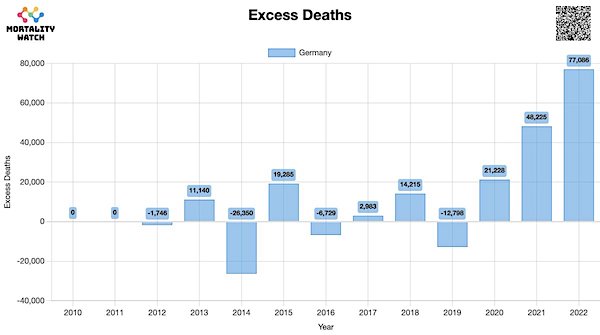

Hawk
A red-tailed hawk stabilizing its head to stay focused on prey as it hovers in gusting winds.
Credit: Bill Bryantpic.twitter.com/suL0PcGmyN
— Wonder of Science (@wonderofscience) March 15, 2023

Sleepy friends
https://twitter.com/i/status/1635999489684127746


Support the Automatic Earth in virustime with Paypal, Bitcoin and Patreon.







